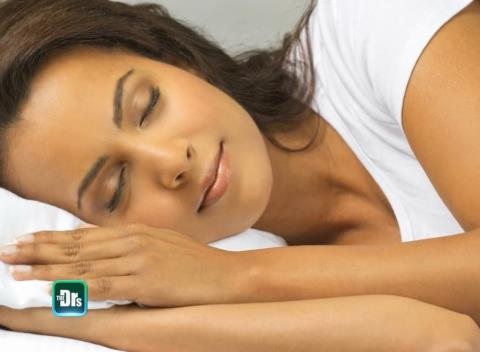What is deep sleep and how much of it should you be getting?
Oliver Wheaton for Metro.co.uk | Thursday 3 Aug 2017 2:07 pm | Metro.co.uk
 There are several different stages of sleeping, but the one which is most important to the body is deep sleep.
There are several different stages of sleeping, but the one which is most important to the body is deep sleep.
In the modern age with our hectic lives and constant stimuli, people are getting less and less deep sleep, which can be having an affect on our health.
What is deep sleep?
Sleep researchers generally divide sleep up into five stages.
Stages one and two are ‘light sleep’, stages three and four are ‘deep sleep’, while stage five is REM.
Light sleep occurs when you first nod off. It usually involves lots of movement, and is easy to wake from.
When your body is finally comfortable you will fall into deep sleep. Your brain switches off and your body does a bit of maintenance.
This includes secreting a growth hormone to repair damaged cells, cleaning your blood with your kidneys, and strengthening your immune system.
What is REM?
REM (as well as being an awesome band) is ‘rapid eye movement’.
This is the final stage of your sleep, where your mind becomes active and your eyes begin to twitch.
 While researchers can observe human bodies when we sleep, it’s hard to know what’s going on inside our brains. That’s why no one is quite sure what purpose REM serves (apart from stimulating dreaming).
While researchers can observe human bodies when we sleep, it’s hard to know what’s going on inside our brains. That’s why no one is quite sure what purpose REM serves (apart from stimulating dreaming).
It’s thought that REM is connected to storing memories and regulating your moods, which might be why people who don’t get enough sleep are often a bit cranky.
MORE: Should they end daylight saving time? Here are the arguments for and against
How much deep sleep do you need?
As you get older deep sleep comes less important. After all, you’re no longer growing and your body can’t repair itself as well.
This is why young children seem to get much more deep sleep than adults.
The average adult only needs about two hours of deep sleep a night, but keep in mind that you can only achieve deep sleep if you have a full and decent sleep cycle, so do NOT take this to mean you only need two hours of sleep a night – it doesn’t work like that!
How to get a better night’s sleep
Stick to a routine
Try to go to bed at the same time every night and wake up around the same hour. Obviously you’ll want a bit of a lie-in on the weekends, but try not to sleep until 11 if you usually wake up at six – it messes with your body clock.
Control your naps
You shouldn’t be napping for more than 15-20 minutes. Any longer than this and you will find it hard to sleep that night.
Also, napping after dinner (hey, food makes us all drowsy) is a no-no. Fight through the feeling and get a good night’s sleep a few hours later.
Light can make (or break) a good sleep cycle
Exposure to light wakes you up, so make sure you have your breakfast by a window or outside.
Similarly, don’t lie in bed at night staring at your phone or computer screen. Try to avoid technology for an hour before you go to bed – this will allow your brain to switch off and make it easier to fall sleep.
No caffeine before bed
This one should be a no-brainer, but for some people it can be hard.
Avoid stimulants like caffeine in the later stages of the day.
Alcohol, while often considered the perfect night cap, also messes with your sleep cycle, so try not to drink before bedtime.
Exercise
Having trouble switching your mind off? Try your body instead.
Exercising will not only tire you out, but will also increase the amount of time you spend in deep sleep.
You don’t have to run a marathon each day – just a short jog or even a walk will help.
Just make sure you exercise at least three hours before bedtime – working out and then trying to sleep is extremely hard because your body is still pumped full of adrenaline and endorphins.




